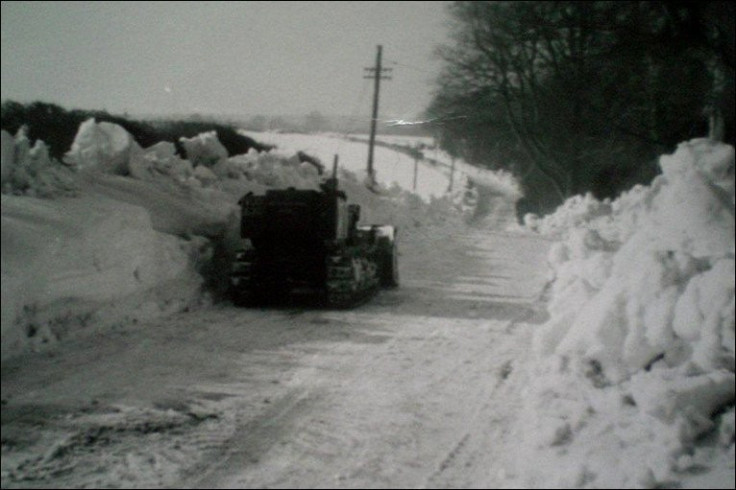Big Freeze UK: Motorists Stranded as Blizzards Sweep Britain
Met Office amber weather warnings remain in force

Severe weather warnings are in force for much of England, Wales, Scotland and Northern Ireland, as violent blizzards forced schools to close, caused power blackouts and left motorists stranded.
The UK is experiencing its coldest March for 50 years, and though average snowfall was only 8cm, it was whipped by strong winds in some places into deep drifts.
A combination of ice, snow, sleet and high winds brought hazardous conditions on the roads, while flood warnings were issued across the south.
A woman died in Looe, Cornwall when her house collapsed in a landslide, with torrential rain destroying a block of flats and forcing the evacuation of residents.
The Met Office issued yellow snow alerts for much of the UK, urging people to be aware of adverse conditions.
Seventy motorists were rescued from their cars on the A595 in Cumbria, as two-metre-high drifts forced the deployment of snow ploughs and mountain rescue teams. In places, drifts reached six metres, burying cars completely.
In Belfast, more than 200,000 electricity customers were affected by a blackout, with Northern Ireland Electricity confirming the whole of Belfast was in blackout at one stage. High winds felled trees, with cables frozen and power lines brought down, crippling the network. Engineers were struggling to connect 35,000 homes.
Julia Carson, NIE communications manager, said: "The severe weather is set to continue into Saturday and we are likely to see further damage to the network which will affect electricity supplies."
Up to 1,500 properties remained without power in Cumbria, Electricity North West said, with repair work hampered by road closures, preventing access to some communities. The company was considering using a helicopter to transport engineers to more remote areas.
Hundreds of schools were closed across Northern Ireland, Scotland, Wales and England.
Sporting events were cancelled across the country, with racing at Newbury and Doncaster among the first victims.
The Met Office warned that there was "continued risk of significant disruption", with a slow-moving band of rain, sleet and snow forecast for central parts of the UK.
Strong south-easterly winds meant drifts were likely in higher areas, while at lower levels, a further 5-10cm of snow were predicted. Forecasts for exact locations remained "very uncertain at this stage", it said.
The prolonged cold snap prompted fears that gas supplies could be exhausted, but the National Grid has said there was "plenty of gas available".
© Copyright IBTimes 2025. All rights reserved.





















